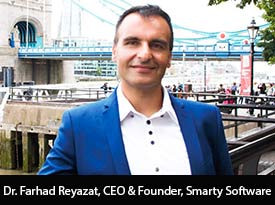 Artificial Intelligence in Enhancing Blockchain Security and Combating DeFi
Artificial Intelligence in Enhancing Blockchain Security and Combating DeFi
 0 comment
0 comment
 29 Jul, 2025
29 Jul, 2025

Decentralized Finance (DeFi) has been hailed as a revolutionary shift away from traditional, centralized financial systems, promising greater openness, transparency, and resilience by leveraging blockchain technology. Yet, despite the exalted ideal of DeFi as a "trustless" or "trust-minimizing" system, simply relying on blockchain technology and decentralization is not enough to fully secure the future of finance.
Dr. Farhad Reyazat's insightful article on this topic points out a critical nuance: trust in financial systems is complex and multilayered. Traditional finance creates trust through heavy regulation, trusted intermediaries, formal oversight, and long-standing institutional norms. By contrast, DeFi aims to replace the need for trust in intermediaries with confidence in code—rules embedded in blockchain protocols and smart contracts that are verifiable and immutable.
However, this "code-based confidence" is not a total solution. Human factors such as software bugs, design flaws, governance issues, and malicious actors mean that a measure of trust is still unavoidable. Pure software solutions cannot yet address all risks, such as scams or unintended exploits. For DeFi to achieve mainstream adoption and gain the confidence of global users, additional trust-enhancing mechanisms are necessary.
Dr Reyazat emphasizes that legal regulation, anti-fraud measures, and accountable governance must complement blockchain's technical guarantees. Trusted intermediaries and regulatory frameworks can help manage risks that technical protocols alone can't eliminate. They also play an important role in dispute resolution, consumer protection, and ensuring market integrity. Without these social and institutional layers, users may remain wary of DeFi despite its technological advantages.
In essence, while blockchain decentralization reduces reliance on traditional intermediaries, it does not eliminate the necessity of trust — it transforms it. Trust shifts from trusting people or institutions to trusting the code and those who develop and maintain it, as well as the regulatory ecosystem surrounding it. For DeFi to sustainably transform finance, rebuilding trust requires harmonizing decentralized tech with pragmatic governance and legal safeguards.
This nuanced understanding is crucial for academic research, policymaking, and industry players aiming to realize the promise of DeFi while responsibly mitigating its risks. As Dr. Reyazat concludes, decentralized finance’s future depends on blending innovation in technology with reinvented forms of trust—technical, organizational, and regulatory alike[Rebuilding Trust in DeFi: Why Blockchain Alone Can’t Secure the Future of Finance - Dr. Farhad Reyazat].
0 comment